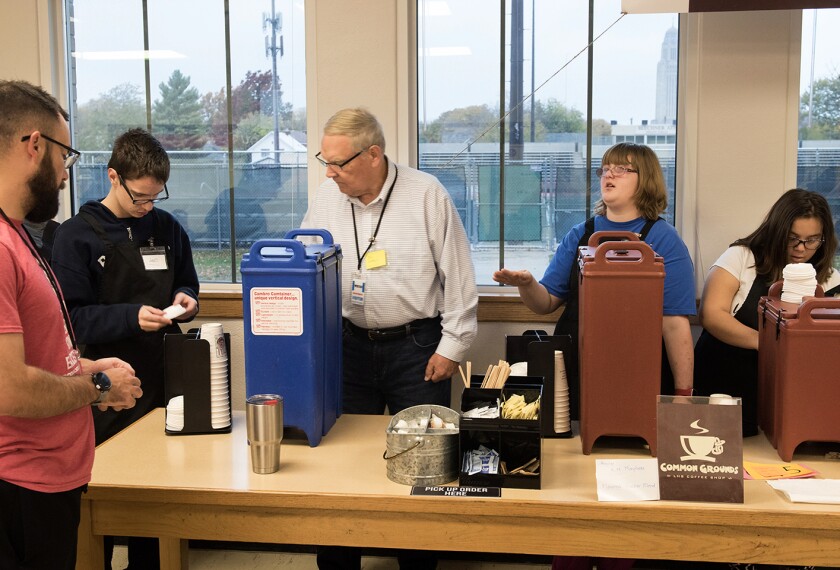Going to school from kindergarten through senior year with all deaf and hard-of-hearing students showed Gideon Firl the benefits of learning in an environment tailored to his communication needs.
Though he’s “never heard a single word,” Gideon has starred in several plays here at the Maryland School for the Deaf, where student actors recite their lines in American Sign Language.
“If I had gone to a hearing school, the chances for me to act would have been very slim,” he said through a sign-language interpreter.
The chance for expanded opportunities was also a factor in the senior’s choice of colleges. In the fall, he plans to attend Gallaudet University, a private, 1,500-student university in Washington that tailors its approach to deaf and hard-of-hearing students.
A sharp, amiable student, the 17-year-old also considered several traditional colleges and universities that enroll mostly hearing students, but in the end he settled on Gallaudet, where his parents, both deaf, met as students.
“My parents were very supportive,” Gideon said. “A hearing college or a deaf college was fine with them. They wanted me to follow my dreams.”
In considering postsecondary paths, students who are deaf often consider their social needs in addition to their academic ones.
Under federal civil rights laws, all colleges and universities are required to provide students who are deaf and blind with accommodations like interpreters, note-takers, and special computer equipment.
Confident that he could have a rewarding academic experience at a college that enrolls mostly hearing students, Gideon was swayed toward Gallaudet by the chance to interact with a largely deaf student body without first filtering his thoughts and ideas through an interpreter.
We take a look at how six students with disabilities are planning their transition to college and the workforce:
- Md. Senior Opts to Study With Other Hearing-Impaired Students
- After Eight Years at Lab School, Pa. Student Seeks Culinary Arts Career
- Ga. Student With Dyslexia Battles Her Way to College
- Special Ed. Student Aims for College, Political Career
- Va. Twin Brothers Find a Place in the Work World
Gideon, who has two hearing brothers and a deaf sister, doesn’t read lips, and communicates with people who do not know ASL through writing. Outside of his family, his friends are mostly deaf.
“I realize that if I want to fit into a hearing world, I will have to learn more,” said Gideon.
He plans to take speech coursework in college, where he will learn strategies for lip reading and communicating with his hearing peers.
Gideon wants to study chemistry and maybe psychology. He’s particularly interested in what happens to the brain when one sense is weakened—for example, whether deaf people have heightened awareness in other sensory areas.
Experts on postsecondary transitions for deaf students say students’ assertiveness and ability to advocate for themselves can be a game changer for them, especially at traditional colleges and universities.
Even if institutions provide adequate accommodations for students who are deaf and hard of hearing, the onus is on the student to access those services.
Many don’t take full advantage of the options available to them because they are unaware of their rights or unwilling to be persistent in accessing them, found a needs-assessment survey conducted by Pepnet 2, a federally funded resource center committed to increasing education and career choices for those who are deaf and hard of hearing.
Those issues are less of a concern at a college like Gallaudet, where most students are deaf and hard of hearing.
Gideon says he’s excited to see what college holds. And he’s eager to spend a little more time interacting with his deaf peers.
“The community tends to be closer to each other,” he said of those students. “We support each other.”






